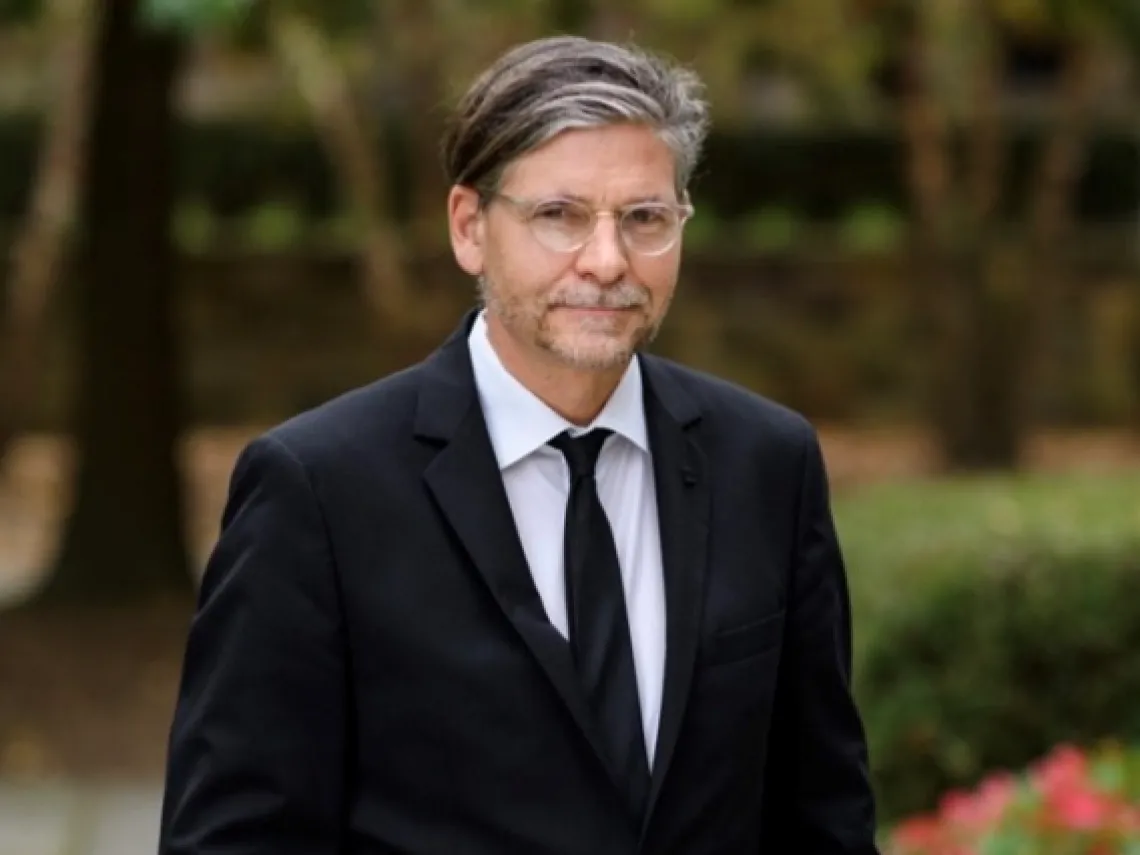Jan-Werner Müller to Close Pitt Speaker Series March 31
Müller will discuss how democracy’s critical infrastructure can be restored.

The Pitt Family Foundation Speaker Series will welcome Princeton professor and political philosopher Jan-Werner Müller on Wednesday, March 31, 2022. Müller, who directs the History of Political Thought Project at the University Center for Human Values in Princeton, will be the final speaker of the Pitt series’ second year.
In a conversation with former Tucson mayor and current University of Arizona Law Professor of Practice Jonathan Rothschild, Müller will discuss how democracy’s critical infrastructure could be renovated, re-empowering citizens while also preserving a place for professionals such as journalists and judges.
The Pitt Family Foundation Speaker Series is part of the Participatory Democracy Initiative, an interdisciplinary and community-engaged program of the University of Arizona James E. Rogers College of Law, the School of Government & Public Policy, and the School of Journalism.
When: March 31, 2022, 5:30-6:45 p.m. (MST)
Where: Pitt Family Foundation Speaker Series will be delivered live via Zoom.
Who may attend: This event is free and open to the public.
About Jan-Werner Müller
Jan-Werner Müller is a professor of politics at Princeton University, where he also directs the in History of Political Thought Project. His previous books include “What is Populism?” and “Contesting Democracy: Political Ideas in Twentieth-Century Europe.” He writes for the Guardian, the London Review of Books, and The New York Review of Books.
In his latest book “Democracy Rules,” Professor Müller shows that we need to re-invigorate the intermediary institutions that have been deemed essential for democracy’s success ever since the nineteenth century: political parties and free media. Contrary to conventional wisdom, these are not spent forces in a supposed age of post-party populist leadership and post-truth. Müller suggests concretely how democracy’s critical infrastructure of intermediary institutions could be renovated, re-empowering citizens while also preserving a place for professionals such as journalists and judges. These institutions are also indispensable for negotiating a democratic social contract that reverses the secession of plutocrats and the poorest from a common political world.
